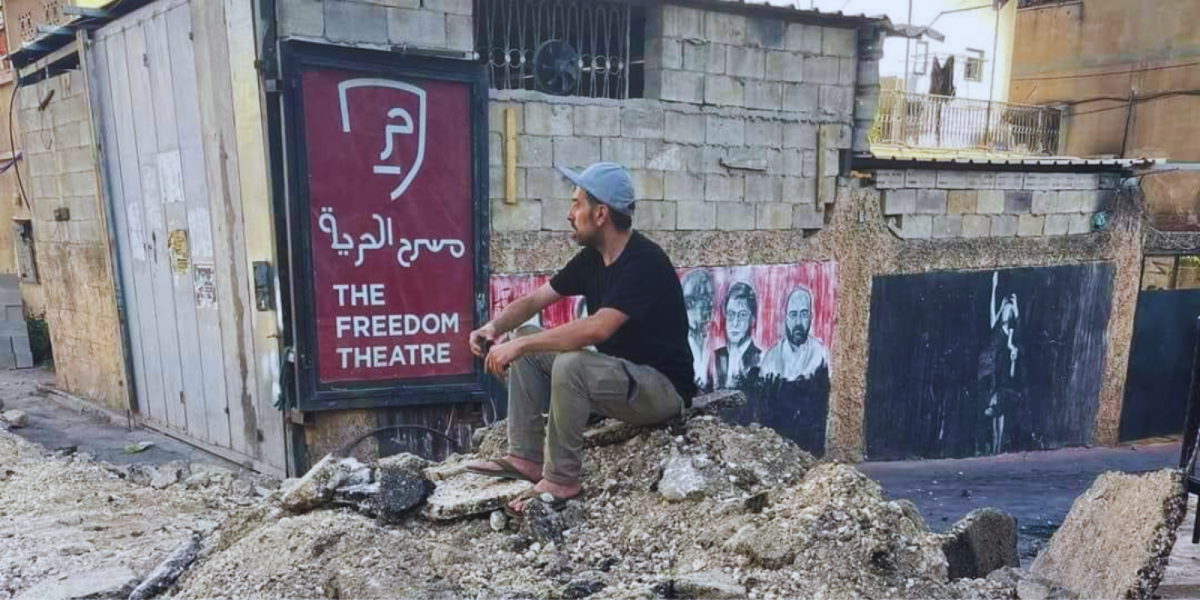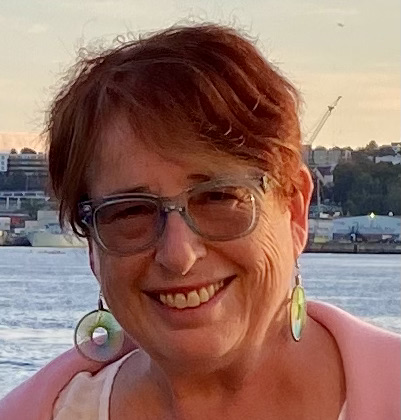For two days beginning on July 3, Israeli helicopter gunships pulverized dozens of buildings, storefronts, and homes in Jenin’s refugee camp—an area half a kilometre square with more than 11,000 residents in the Occupied West Bank. Armed drones fired missiles on the Palestinian inhabitants, and many civilians had to run for their lives. Armoured bulldozers and tanks tore up the streets, then flattened scores of cars. More than 1,000 Israeli soldiers participated in the raid, the largest incursion in the West Bank in two decades, since fighting during the Second Intifada. Twelve Palestinians were killed in the murderous attack, and hundreds were injured.
As some will recall, in 2002 Israel tried to pound residents of Jenin into submission. As then IDF spokesperson Richard Hecht put it, “The goal was to break the safe haven mindset of the refugee camp.” Israel occupied Jenin illegally and brutally for ten days.
On April 2, 2002, during “Operation Defensive Shield,” Israel had already illegally occupied five Palestinian cities and towns. Then the Israel Defense Forces (IDF) rolled in to occupy Jenin and Nablus. Israel insisted that Jenin “served as a launch site for… terrorist attacks against Israeli civilians.” Yet is was Israel that killed 52 people, injured hundreds and forced 11,000 to flee.
Fast forward to today. Consider for a minute that, 20 years later, the eleventh-most significant military power in the world is allowed (and even encouraged by the likes of the United States, Canada, and some governments in western Europe) to crush the Palestinians with impunity. And not one nation seriously intervenes on the Palestinians’ behalf.
The international community has meekly called for some kind of international intervention, but as Al Jazeera contributor Marwan Bishara writes, no global force has ever intervened against Israel on behalf of the Palestinians. He said acerbically, “We are closer to divine intervention than international intervention.”
This latest attack on Jenin stands out as an atrocity all on its own. Many say Israel’s destruction of Jenin and its murder and terrorizing of civilians should be prosecuted as a war crime.
According to the United Nations Office for Coordination of Humanitarian Affairs, Israel has launched 570 violent attacks against Palestinians in the West Bank in the last six months alone. That works out to an average of three per day, or 95 per month. Of the 570 attacks, 160 (or 28 percent) resulted in serious physical injuries to Palestinian civilians. By comparison, 2022 figures show that Israel attacked Palestinians 71 times each month, 12 months of the year.
What’s wrong with the media in Canada?
Here in Canada, media coverage about Jenin is weak, to say the least. The “legacy” outlets tend to rely on wire service copy from the Associated Press or Reuters. CBC News has a stringer in London who reports on the Middle East—but they are either reading press releases from the Israeli government, or skimming what they can from mainstream European news sources.
To add insult to injury, for the most part, the Canadian media still refuse to air Palestinian voices. First we hear from an Israeli general who claims the IDF was totally justified in its relentless attacks because there were “terrorists” in Jenin. Then we listen to a Canadian woman who works for the UN who is mortified by the attacks. Then we get Itamar Ben-Gvir, Israel’s minister of national security, who says the best thing for Jews is to carry guns. “I call on the public who meet the criteria: carry guns.”
Yet diplomats, heads of state, and our own prime minister have said little to nothing to criticize Israel for its oppression of a people who live under a brutal and illegal occupation—whose water is rationed, electricity cut, and whose children are routinely killed.
Last week I got a call from a reporter I know at CTV Atlantic. She wanted to interview me when she heard about the rally for Jenin in Halifax two weeks ago. She phoned back an hour later to say her producer told her to forget about the interview; he insisted she cover the heat warning here in Halifax instead. She was apologetic, but still, CTV Atlantic was the only media outlet that bothered to send a video journalist to cover the event. He did a short interview with a Palestinian spokesman and me.
Is something wrong with this picture? I’d say so.
Jenin Brigades are the resistance
Commentators now say that Israel does not care about the potential collapse of the Palestinian Authority, the Fatah-controlled government body which is meant to police Jenin. Israel just wants to destroy the armed resistance of the Jenin Brigades, a small, cross-factional armed group based in the camp.
Since 1967, Israel has forcibly and illegally occupied Palestinian land of the West Bank and East Jerusalem. The Israeli state also controls everything that goes on in the Gaza Strip—ensuring there is virtually no way in or out. It blockades goods from getting into Gaza, prevents its fishermen from earning a serious living by limiting their access to the Mediterranean Sea, and reserves the right to enter Gaza at will with its military. The UN has passed scores of motions calling for Israel’s withdrawal from the Occupied Territories to no avail.
The Jenin Brigades are the resistance. UN Resolution 38/17, which recognizes the right of peoples to self-determination, says that people living under subjugation of a foreign power have the right to fight back:
Reaffirms the legitimacy of the struggle of peoples for their independence, territorial integrity, national unity and liberation from colonial domination, apartheid and foreign occupation by all available means, including armed struggle.
This is what the people in Jenin want to do.
Visiting the Freedom Theatre in Jenin
My own experience of Jenin was in 2010, when I went on a study tour of Palestine and Israel. We visited the The Freedom Theatre, which is based on the principle that cultural expression is meaningful to all, especially to those living under foreign occupation. The theatre is a community space that encourages young people from Jenin to act in plays, to perform in films and to raise the level of awareness, pride and culture in the community.
I met the theatre’s co-founder, an Israeli with a Jewish mother and a Palestinian father, the late Juliano Mer Khamis.
He noted, “What we do in the theatre is not trying to be a substitute or an alternative to the Palestinian resistance in the struggle for liberation, just the opposite. This must be clear… We join, by all means, the Palestinian struggle for liberation, which is our liberation struggle. We are not healers. We are not good Christians. We are freedom fighters.”
In response to the Jenin raid, on July 4 a Palestinian man deliberately drove a vehicle into a crowd near a mall in Tel Aviv. Eight people were injured. The 21-year-old man was then shot dead by an armed Israeli civilian who happened to be walking by the scene.
Try to imagine for one second life under a brutal military occupation. Water, electricity and telecommunications are often cut by Israel. More than 60 percent of your relatives and friends are unemployed. There is little food and poor sanitation. At any time, Israeli troops can ride into your town or your refugee camp to destroy houses, fire guns at children or disabled people, and terrorize your loved ones.
Not only that, the more than 600,000 Israeli-Jewish settlers who live in 144 illegal settlements (on land stolen from the Palestinians) attack you, kill your livestock, poison your wells, or pistol-whip you and your family when you are harvesting olives on your own land.
It is little wonder some Palestinians slip into Israel proper and carry out attacks. I am surprised there are not more of them.
This article was previously published on Judy Haiven’s blog and in Canadian Dimension magazine.
Did you like this article? Help us produce more like it by donating $1, $2, or $5. Donate


